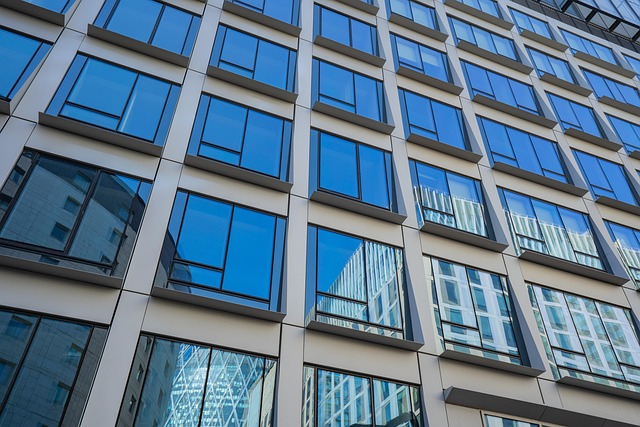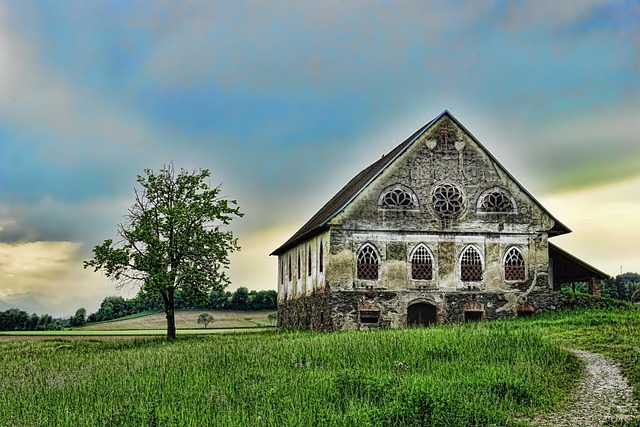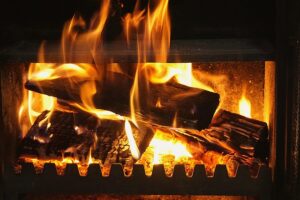Commercial electric boilers tailored for high-altitude environments overcome performance challenges through advanced modular systems. These innovations ensure efficient heating for institutions and industries in demanding mountainous regions, avoiding traditional derating. Real-world case studies demonstrate their success, with applications at Himalayan resorts and Andes research stations. Future developments include smart controls and sensors for automatic altitude-based adjustments, enhancing efficiency and reducing carbon emissions in commercial HVAC systems.
Commercial electric boilers tailored for high-altitude installations represent a significant advancement in heating technology, offering efficient performance without traditional derating. This article explores the unique challenges of deploying electric boilers at extreme elevations and how advanced design features ensure optimal output. We delve into key technologies enabling these game-changing boilers to thrive under demanding conditions, backed by real-world case studies. Additionally, we anticipate future trends shaping the market for altitude-friendly commercial electric boilers.
- Understanding High-Altitude Challenges for Electric Boilers
- Key Features of Commercial Electric Boilers for Altitudes
- Advanced Technologies Enabling High-Performance Boiling
- Case Studies: Successful Installations at Extreme Elevations
- Future Trends in Altitude-Friendly Commercial Boilers
Understanding High-Altitude Challenges for Electric Boilers

In high-altitude environments, commercial electric boilers face unique challenges that differ from their sea-level counterparts. As elevation increases, atmospheric pressure decreases, which can significantly impact the performance and efficiency of electric heating systems. This is particularly true for commercial electric boilers designed for institutional heating or industrial processes, where high capacity electric boilers are essential.
The reduced air pressure at higher altitudes affects the combustion process in electric steam boilers and electric hot water boilers, potentially leading to derating—a reduction in capacity and performance. To overcome these challenges, advanced commercial boiler technology must be employed. Modular boiler systems, for instance, offer a flexible solution by allowing for easy adjustments to meet the specific energy needs of high-altitude installations without compromising efficiency. This ensures that institutions and industries can rely on reliable and efficient electric heating systems even in these demanding environments.
Key Features of Commercial Electric Boilers for Altitudes

Commercial electric boilers designed for high-altitude installations offer a range of key features tailored to meet the unique challenges of mountainous regions. These boilers are engineered to perform optimally even at lower atmospheric pressures, ensuring efficient heating solutions for institutional settings and commercial HVAC systems. Advanced commercial boiler technology incorporates robust materials and precise controls to withstand extreme conditions, delivering consistent hot water or steam production without derating.
The high capacity electric boilers are renowned for their energy efficiency, reducing operational costs in the long run. Electric heating systems provide a clean and sustainable alternative to traditional fuel sources, making them environmentally friendly options. Moreover, modular boiler systems offer flexibility in installation and maintenance, catering to the diverse needs of various institutional heating applications. Electric hot water boilers, with their rapid heating capabilities, are ideal for demand-type heating, while energy-efficient designs contribute to overall system performance and sustainability.
Advanced Technologies Enabling High-Performance Boiling

Advanced technologies have played a pivotal role in enhancing the performance of commercial electric boilers designed for high-altitude installations. These innovations ensure that boilers can operate at optimal efficiency, even under challenging conditions, where traditional systems might require derating. One key advancement is the integration of smart control systems and precise temperature sensors, enabling real-time adjustments to maintain consistent boiling performance.
Moreover, modern commercial boiler technology leverages advanced electric heating systems, such as modular boiler systems and energy-efficient designs, to deliver high-capacity hot water or steam production with minimal wastage. This not only enhances overall system efficiency but also translates into significant cost savings for institutional heating and commercial HVAC applications. With these improvements, industrial electric heating solutions have become a reliable option for demanding environments, providing consistent performance at any altitude.
Case Studies: Successful Installations at Extreme Elevations

In recent years, numerous successful case studies have demonstrated the efficacy of commercial electric boilers in high-altitude installations, challenging the conventional wisdom of derating at such elevations. These real-world applications showcase the advancements in commercial boiler technology and the versatility of electric heating systems. For instance, a mountain resort in the Himalayas has reported exceptional performance with an electric steam boiler installed at 4,500 meters above sea level, supplying both hot water and heating for institutional facilities without any derating.
Another notable example involves a remote research station in the Andes, where a high-capacity electric hot water boiler was integrated into their commercial HVAC systems. This installation not only met the energy demands of the facility but also contributed to environmental sustainability by reducing the reliance on fossil fuels. These case studies underscore the potential of modern energy efficient boilers, including modular boiler systems, to thrive in extreme environments, opening new possibilities for future high-altitude projects.
Future Trends in Altitude-Friendly Commercial Boilers

As technology advances, the future of commercial electric boilers designed for high-altitude installations looks promising. Manufacturers are continuously pushing the boundaries of what’s possible, developing innovative solutions that challenge traditional derating methods. One exciting trend is the integration of advanced control systems and smart sensors, allowing these boilers to automatically adjust and optimize performance based on altitude and other environmental factors. This ensures consistent efficiency, even at high elevations.
Furthermore, the shift towards sustainable and energy-efficient commercial HVAC systems is expected to drive the adoption of electric heating systems. High-capacity electric boilers, including electric steam boilers and electric hot water boilers, are becoming increasingly popular in institutional heating applications. Modular boiler systems offer flexibility and scalability, catering to diverse institutional needs while promoting a greener environment through reduced carbon emissions. These future trends paint a picture of a more efficient, sustainable, and adaptable commercial boiler landscape.
Commercial electric boilers that are designed for high-altitude installations without derating represent a significant advancement in heating technology. By understanding the unique challenges of mountainous regions and leveraging key features like advanced heating elements and efficient insulation, these boilers offer reliable performance even at extreme elevations. Success stories from real-world case studies further underscore their effectiveness. Looking ahead, future trends in altitude-friendly commercial boilers promise to enhance efficiency and expand capabilities, ensuring that businesses in high-altitude areas can enjoy consistent hot water and space heating without compromise.






